Related Research Articles

Young Turks was a political reform movement in the early 20th century that favored the replacement of the Ottoman Empire's absolute monarchy with a constitutional government. They led a rebellion against the absolute rule of Sultan Abdulhamid II in the 1908 Young Turk Revolution. With this revolution, the Young Turks helped to establish the Second Constitutional Era in the same year, ushering in an era of multi-party democracy for the first time in the country's history.

Van Province is a province and metropolitan municipality in the Eastern Anatolian region of Turkey, between Lake Van and the Iranian border. Its area is 20,921 km2, and its population is 1,128,749 (2022). Its adjacent provinces are Bitlis to the west, Siirt to the southwest, Şırnak and Hakkâri to the south, and Ağrı to the north. The capital of the province is the city of Van, with a population of 525,016 at the end of 2022. The second-largest city is Erciş, with 92,945 inhabitants at end 2022. The province is considered part of Western Armenia by Armenians and was part of ancient province of Vaspurakan. The region is considered to be the cradle of Armenian civilization. Before the Armenian genocide, Van Province was part of six Armenian vilayets. A majority of the province's modern day population is Kuresunni Azerbaijanis and Kurdish.

The Hamidian massacres also called the Armenian massacres, were massacres of Armenians in the Ottoman Empire in the mid-1890s. Estimated casualties ranged from 100,000 to 300,000, resulting in 50,000 orphaned children. The massacres are named after Sultan Abdul Hamid II, who, in his efforts to maintain the imperial domain of the declining Ottoman Empire, reasserted pan-Islamism as a state ideology. Although the massacres were aimed mainly at the Armenians, in some cases they turned into indiscriminate anti-Christian pogroms, including the Diyarbekir massacres, where, at least according to one contemporary source, up to 25,000 Assyrians were also killed.
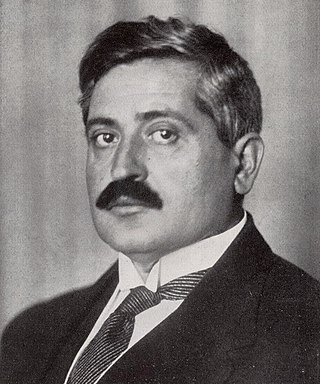
Mehmed Talaat, commonly known as Talaat Pasha or Talat Pasha, was an Ottoman politician and convicted war criminal who served as the de facto leader of the Ottoman Empire from 1913 to 1918. Talaat Pasha was chairman of the Union and Progress Party, which operated a one-party dictatorship in the Empire; during World War I he became Grand Vizier. He was one of the perpetrators of the Armenian genocide and other ethnic cleansings during his time as Minister of Interior Affairs.
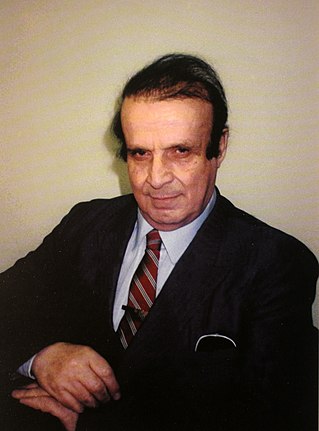
Vahakn Norair Dadrian was an Armenian-American sociologist and historian, born in Turkey, professor of sociology, historian, and an expert on the Armenian genocide.

The Greek genocide, which included the Pontic genocide, was the systematic killing of the Christian Ottoman Greek population of Anatolia which was carried out mainly during World War I and its aftermath (1914–1922) on the basis of their religion and ethnicity. It was perpetrated by the government of the Ottoman Empire led by the Three Pashas and by the Government of the Grand National Assembly led by Mustafa Kemal Atatürk, against the indigenous Greek population of the Empire. The genocide included massacres, forced deportations involving death marches through the Syrian Desert, expulsions, summary executions, and the destruction of Eastern Orthodox cultural, historical, and religious monuments. Several hundred thousand Ottoman Greeks died during this period. Most of the refugees and survivors fled to Greece. Some, especially those in Eastern provinces, took refuge in the neighbouring Russian Empire.
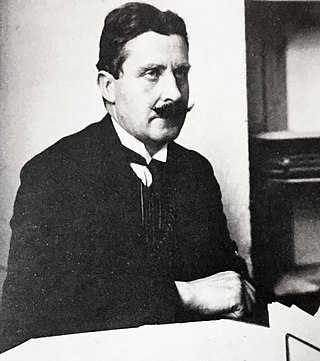
Bahaeddin Shakir or Bahaddin Şakir was a physician, Turkish nationalist politician, and one of the architects of the Armenian genocide. Though he was not a minister or deputy in the government, he held powerful sway in the Central Committee of the Committee of Union and Progress and was the director of the Şûrâ-yı Ümmet, a magazine that supported the party. He was one of the three important names of the "Doctors Group" in the CUP ; He was a part of the pan-Turkist/Turanist wing of Union and Progress.

Armenian genocide denial is the claim that the Ottoman Empire and its ruling party, the Committee of Union and Progress (CUP), did not commit genocide against its Armenian citizens during World War I—a crime documented in a large body of evidence and affirmed by the vast majority of scholars. The perpetrators denied the genocide as they carried it out, claiming that Armenians in the Ottoman Empire were resettled for military reasons, not exterminated. In the genocide's aftermath, incriminating documents were systematically destroyed, and denial has been the policy of every government of the Republic of Turkey, as of 2023, and later adopted by the Republic of Azerbaijan, as of 1991.
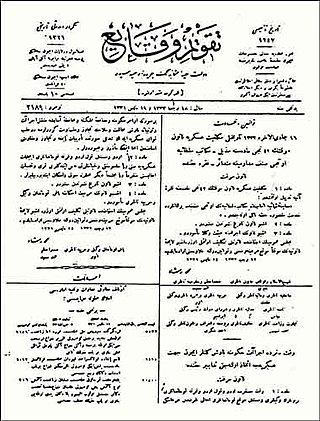
The Temporary Law of Deportation, also known as the Tehcir Law, or officially by the Republic of Turkey, the "Sevk ve İskân Kanunu" was a law passed by the Ottoman Council of Ministers on May 27, of 1915 authorizing the deportation of the Ottoman Empire's Armenian population. The resettlement campaign resulted in the deaths of anywhere between 800,000 and over 1,500,000 civilians, in what is commonly referred to as the Armenian genocide. The bill was officially enacted on June 1, 1915, and expired on February 8, 1916.
Heath Ward Lowry is the Atatürk Professor of Ottoman and Modern Turkish Studies emeritus at Princeton University and Bahçeşehir University. He is an author of books about the history of the Ottoman Empire and Modern Turkey.
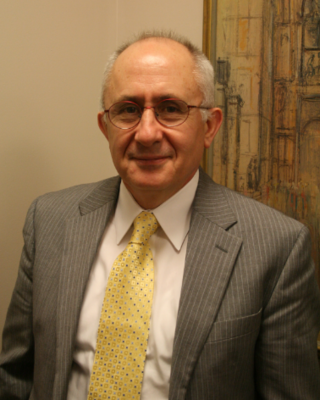
Altuğ Taner Akçam is a Turkish-German historian and sociologist. During the 1990s, he was the first Turkish scholar to acknowledge the Armenian genocide, and has written several books on the genocide, such as A Shameful Act (1999), From Empire to Republic: Turkish Nationalism and the Armenian Genocide (2004), The Young Turks' Crime Against Humanity (2012), and Killing Orders (2018). He is recognized as a "leading international authority" on the subject. Akçam's frequent participation in public debates on the legacy of the genocide have been compared to Theodor Adorno's role in postwar Germany.
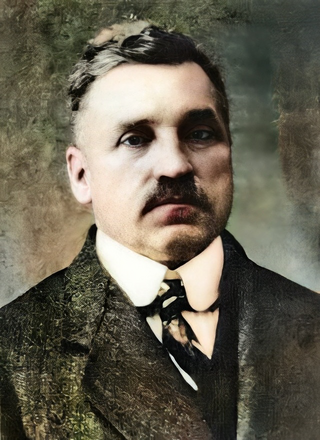
Selanikli Mehmed Nâzım Bey also known as Doktor Nazım was a Turkish physician, politician, and revolutionary. Nazım Bey was a founding member of the Committee of Union and Progress, and served on its central committee for over ten years. He played a significant role in the Armenian genocide and the expulsion of Greeks in Western Anatolia. He was convicted for allegedly conspiring to assassinate Mustafa Kemal Atatürk in İzmir and was hanged in Ankara on 26 August 1926. He also served as the chairman of the Turkish sports club Fenerbahçe S.K. between 1916 and 1918.
Uğur Ümit Üngör is a Dutch–Turkish academic, historian, sociologist, and professor of Genocide studies, specializing as a scholar and researcher of Holocaust studies and studies on mass violence. He served as Professor of History at the Utrecht University and Professor of Sociology at the NIOD Institute for War, Holocaust and Genocide Studies.

The confiscation of Armenian properties by the Ottoman and Turkish governments involved seizure of the assets, properties and land of the country's Armenian community. Starting with the Hamidian massacres and peaking during the Armenian genocide, the confiscation of the Armenian property lasted continuously until 1974. Much of the confiscations during the Armenian genocide were made after the Armenians were deported into the Syrian Desert with the government declaring their goods and assets left behind as "abandoned". Virtually all properties owned by Armenians living in their ancestral homeland in Western Armenia were confiscated and later distributed among the local Muslim population.
Marc David Baer is an historian and professor of International History at the London School of Economics and Political Science.
The Armenian Massacres in Ottoman Turkey: A Disputed Genocide is a 2006 book by Guenter Lewy about the Armenian genocide in the Ottoman Empire. In the book, Lewy argues that the high death toll among Ottoman Armenians was a byproduct of the conditions of the marches and on sporadic attacks rather than a planned attempt to exterminate them.

The relationship between the Armenian genocide and the Holocaust has been discussed by scholars. The majority of scholars believe that there is a direct causal relationship between the Armenian genocide and the Holocaust, however, some of them do not believe that there is a direct causal relationship between the two genocides.

During World War I, Imperial Germany was a military ally of the Ottoman Empire, which perpetrated the Armenian genocide. Many Germans present in eastern and southern Anatolia witnessed the genocide, but censorship and self-censorship hampered these reports, while German newspapers reported Turkish denial of the massacres. About 800 Imperial German Army officers and 25.000 German soldiers were an integral part of the Turkish army and belonged to its command and general staff. It is known that individual German military advisors signed some of the orders that led to deportations of Armenians.

On 15 March 1921, Armenian student Soghomon Tehlirian assassinated Talaat Pasha—former grand vizier of the Ottoman Empire and the main architect of the Armenian genocide—in Berlin. At his trial, Tehlirian argued, "I have killed a man, but I am not a murderer"; the jury acquitted him.

Differing views of what caused the Armenian genocide include explanations focusing on nationalism, religion, and wartime radicalization and continue to be debated among scholars. In the twenty-first century, focus has shifted to multicausal explanations. Most historians agree that the genocide was not premeditated before World War I, but the role of contingency, ideology, and long-term structural factors in causing the genocide continues to be discussed.
References
- 1 2 Curriculum vitae [ permanent dead link ], academic page.
- ↑ Bibliography [ permanent dead link ](in German)
- ↑ Yeni Çıkanlar - Takibat, Tehcir Ve İmha (in Turkish)